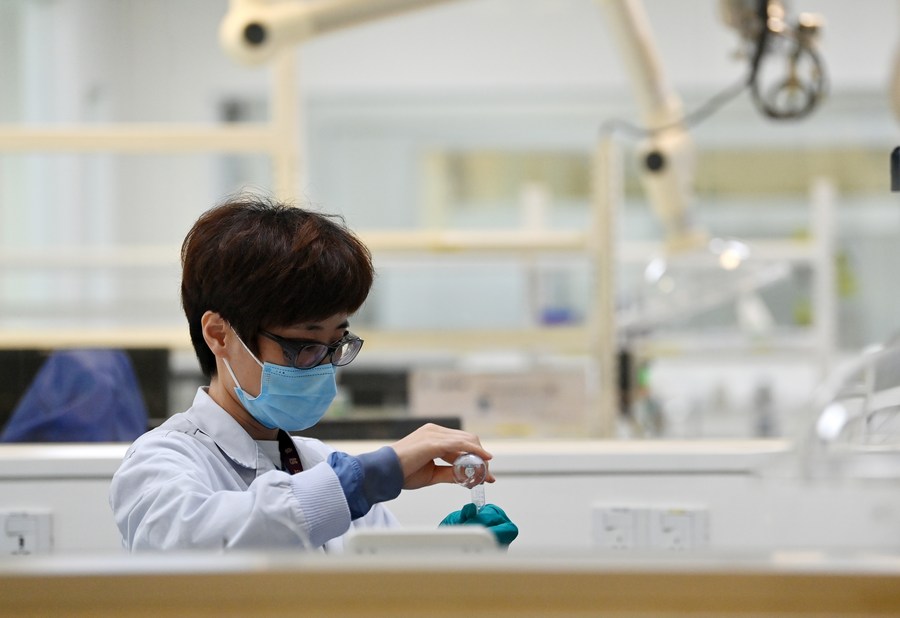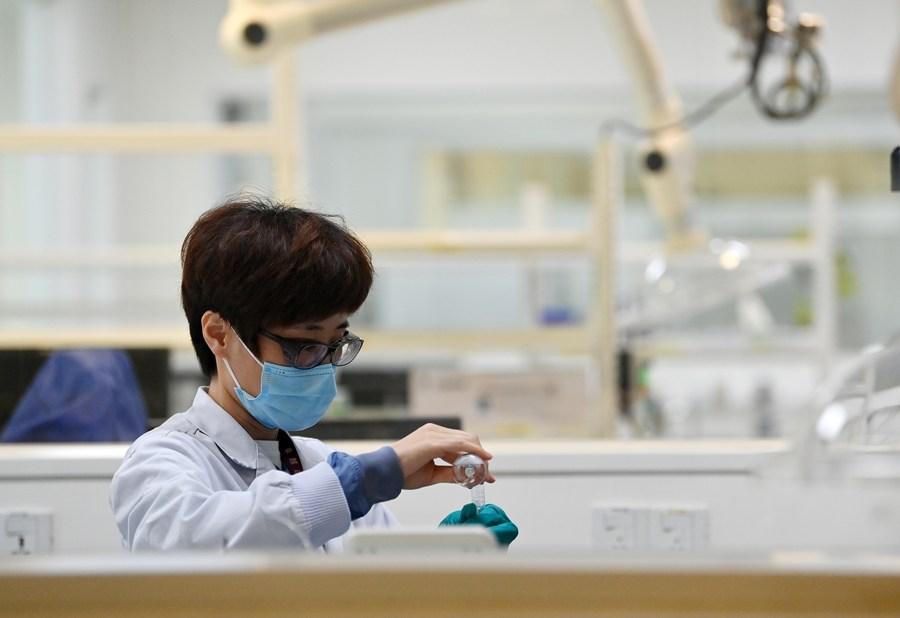
A staff member works at a lab of Novo Nordisk (China) Pharmaceutical Co., Ltd. in north China's Tianjin, Sept. 22, 2022. (Xinhua/Li Ran)
BEIJING, Nov. 3 (Xinhua) -- China's high-tech industry is gaining international popularity despite the deteriorating global investment backdrop, as overseas investors are eying huge growth opportunities it offers.
Bucking the trend of the global foreign direct investment (FDI) slide, FDI into the Chinese mainland maintained double-digit growth in the first three quarters of this year. Specifically, FDI in high-tech manufacturing and the high-tech service sector rose 48.6 percent and 27.9 percent year on year, respectively.
Geek+, a Beijing-based player in autonomous mobile robot technologies, has attracted rounds of financing from global funders, including Intel Capital and Warburg Pincus, since its establishment.
"Investors appreciate our ability to produce robots, our robotic fleet sophistication, and flexible automation solutions based on different scenario requirements and algorithms," said Zheng Yong, founder and CEO of Geek+.
China's complex application scenarios have prompted the company to create products that are more precise, more efficient, and that consistently outperform the overseas rivals, Zheng added.
Another multinational jumping on the bandwagon of China's flourishing high-tech industry is the global healthcare giant Novo Nordisk. During the past two decades, the Danish company has expanded its investment in the facility in Tianjin eight times to boost its local presence.
The company now has seven new investments ongoing at its Tianjin plant, according to Niels Laurbjerg Nielsen, corporate vice president of Novo Nordisk Site Tianjin. The Tianjin facility is not only one of its strategic manufacturing sites but also its only provider of durable insulin injection devices and its largest insulin production site.
Behind the growing global investors' appetite are China's vast consumer market, the upgrading consumption structure, and emerging new business forms, according to Zhao Ping, vice president of the Academy of China Council for the Promotion of International Trade.
Moreover, China's complete manufacturing system also helps multinationals transform their cutting-edge technologies into competitive products, thus raising their competitiveness in the global market, Zhao added.
Foreign companies' commitment to long-term development in China is also reaffirmed by the country's unremitting pledge to opening up and high-quality development.
China has been striving to work with the rest of the world for a more open and free global economy by promoting trade and investment liberalization and facilitation and creating a more attractive business environment, so as to bring more cooperation opportunities to others and give further impetus to global growth.
A fresh move in this direction was the introduction of a new version of a catalogue of industries on Oct. 28, which aims to encourage foreign investment and incentivize foreign businesses toward advanced manufacturing, the service sector, and the central and western regions.
In addition, a slew of measures were unveiled recently, including optimizing the investment environment, facilitating the entry and exit of personnel, and supporting the imports and exports of foreign-invested manufacturing firms to boost foreign investment in the country with a focus on the manufacturing sector.
Herbalife Nutrition, a U.S.-based global nutrition company that has been active in the Chinese market for more than 20 years, is upbeat about the great potential in China's consumer market.
"In the face of the changing global situation and challenges from the pandemic, the voices from China have brought us more certainty amid higher uncertainty in the global market, providing reassurance to the foreign enterprises who seek innovation and further development in China," said Woody Guo, president of Herbalife Nutrition China and senior vice president of Herbalife Nutrition.




 A single purchase
A single purchase









